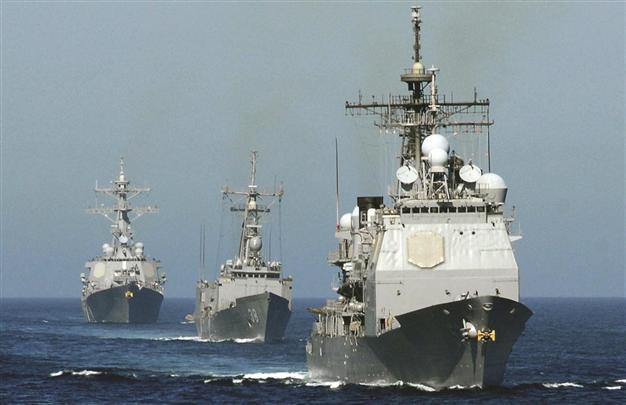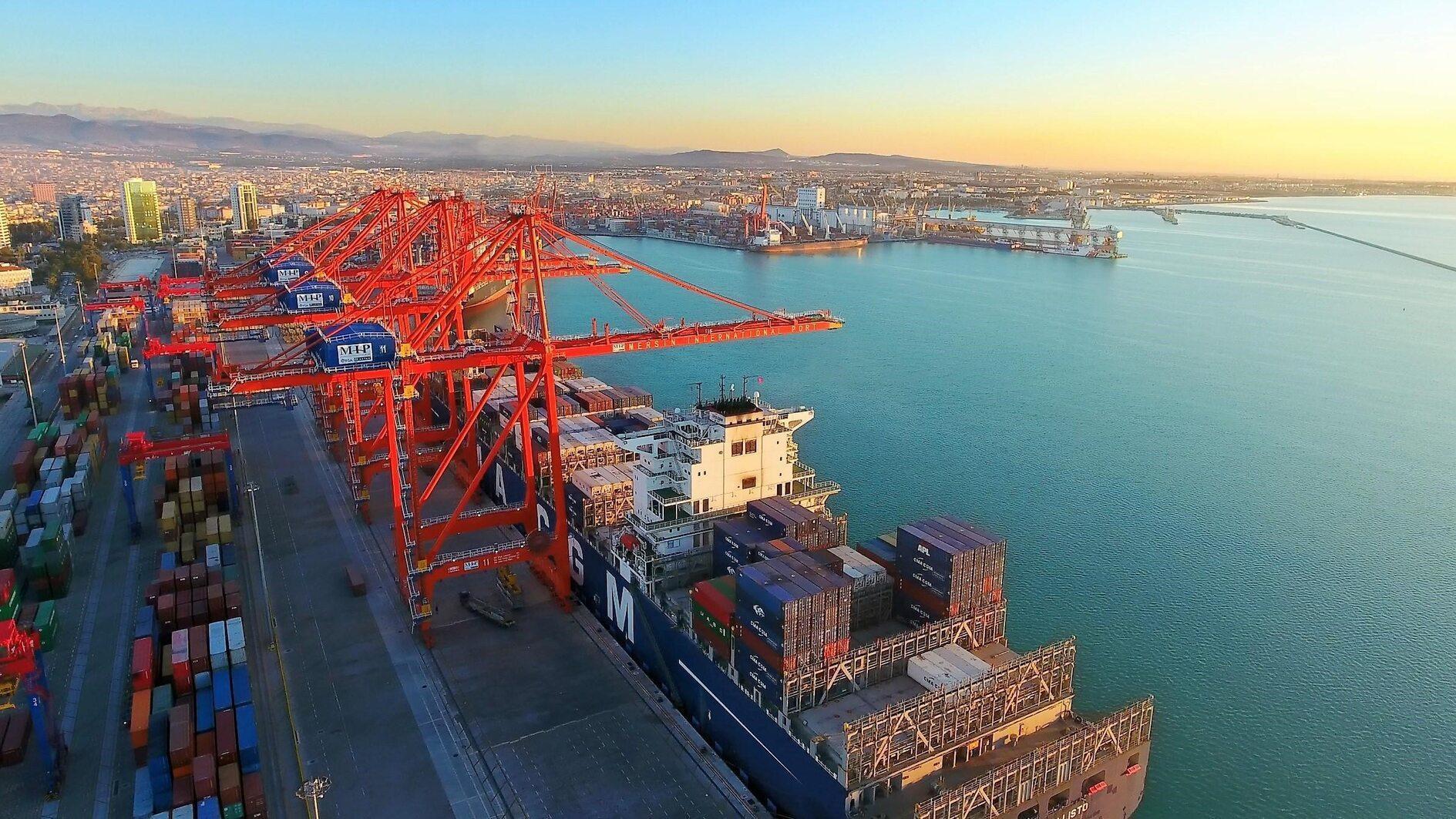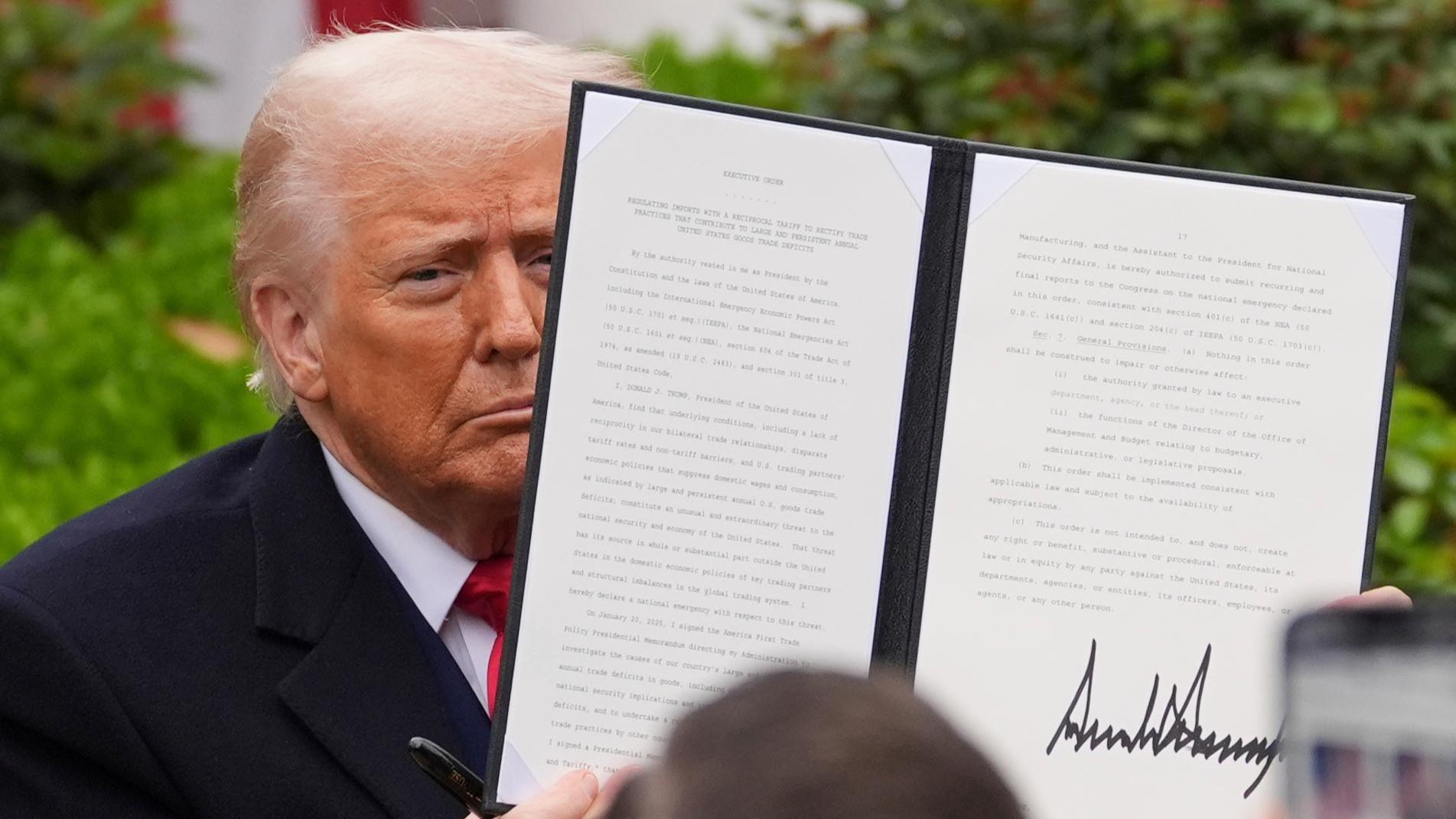A new US arms embargo on Turkey?
Burak Bekdil

The Ticonderoga-class cruiser USS Mobile Bay (CG 53) leads the Oliver Hazard Perry-class frigate USS Curtis (FFG38) and the Arleigh Burke-class destroyer USS Russell in formation off the coast of Southern California.
It went largely unnoticed in Turkey when the U.S. Congress on Dec. 19, 2014, approved the potential transfer to Taiwan and Mexico of six frigates being decommissioned by the American Navy.Signed into law by President Barack Obama, the Naval Vessel Transfer Act of 2013 authorizes the transfer of the frigates Curts and McClusky to Mexico on a grant basis. The act also authorizes the sale of the frigates Taylor, Gary, Carr and Elrod to Taiwan.
All the ships are of the Oliver Hazard Perry class, now being phased out of the U.S. Navy. A story in prominent U.S.-based weekly Defense News said the following: “Gone from earlier versions of the bill are proposed transfers of frigates to Thailand and Pakistan. Those ships were removed from consideration by concerns about the May military coup in Thailand, after which the U.S. government canceled numerous military deals and engagements with the country, and a number of political conditions attached to ongoing military aid to Pakistan.”
The story also said the 2012 version of the Naval Transfer Act, containing a number of ships for Turkey, also failed, “largely due to concerns in Congress about Turkish policies.” But which Turkish policies?
Ankara thinks that the move could be the precursor of an intention for a wider U.S. arms embargo.
“These are almost useless vessels of no strategic importance for the Turkish Navy,” said one senior defense official in Ankara. “The Americans know that the ships would not be great naval assets for Turkey. We think the decision not to transfer the ships to Turkey may be reflecting the likelihood of a broader embargo in the future.”
He said the decision not to transfer the ships to Turkey was “apparently the joint work of the Jewish, Greek and Armenian lobbies at work in Washington.”
A senior Turkish diplomat said it was not a secret that Turkey and the U.S. have divergent opinions on Turkey’s relations with Israel and how Ankara has handled its policy on joint Israeli-Cypriot and Egyptian-Cypriot efforts to search for hydrocarbons in eastern Mediterranean.
“The U.S. move has a naval dimension which prompts us to think that the more imminent problem on the political level is related more to Cypriot hydrocarbons than others,” he said.
A defense procurement official in Ankara said any further U.S. move “that may look like an embargo due to political rifts” would trigger reaction and risk U.S. defense business in Turkey.
“The unfriendly U.S. move came at a time when our U.S. [and European] allies are trying to convince us that going for a Chinese solution in our air defense program is not a good idea. The timing of the frigate decision is puzzling. The Americans know very well which contracts potentially involving U.S. defense business in Turkey could be jeopardized and how much harm that may make to U.S. industry,” said the official.
In September 2013, Turkey selected China Precision Machinery Import-Export Corp. (CPMIEC) to build its first long-range air and anti-missile defense system, but talks with the Chinese contender have not produced a final deal. Prime Minister Ahmet Davutoglu said Jan. 7 that a new, six-month extension would be granted to all three bidders for renewed offers. CPMIEC is competing against a European consortium, Eurosam, and a partnership of the U.S. Raytheon and Lockheed Martin.
In the mid-1990s, Turkey and the U.S. experienced a mini crisis after Washington refused to permit the delivery of critical ammunition parts to Turkey, citing human rights violations in Turkey’s fight against the outlawed Kurdistan Workers’ Party (PKK).
















